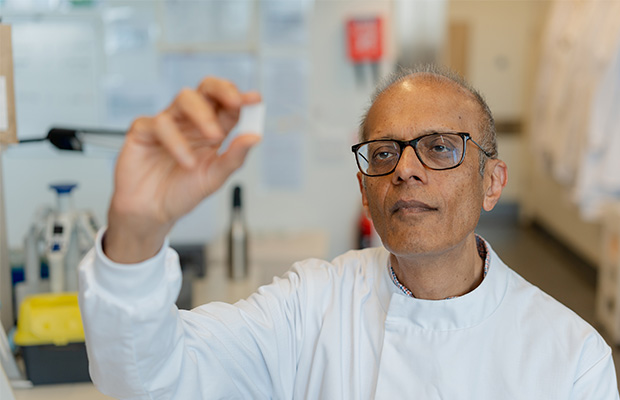What’s most exciting in heart failure research right now?
Currently, we do not have a cure for heart failure, and most treatments only improve the condition, or prevent things from getting worse. But what if we could design treatments that completely repair the heart, so it goes back to normal?
This is one of the most exciting developments scientists are working on. Also promising is research into how to stop heart failure from happening in the first place, and ‘precision medicine', that makes treatments more effective by tailoring them for each person.
What treatments to repair the heart are being investigated?
Researchers are looking at how to get the heart to repair itself in people who have heart failure after a heart attack.
These people develop heart failure because some of the heart muscle dies and is replaced by scar tissue that is stiffer than normal tissue.
In these cases, if we want to get the heart working normally again we need to do 2 things: get the heart muscle that’s been damaged to renew itself, and find a way of getting rid of the scar tissue.
Some of the research is looking to see if this can be done with biological treatments, which are based on naturally occurring chemicals in the body. We call these treatments ‘biologics’.
Biologics are exciting because we have many instances in normal human and animal biology where organs in the body are repaired naturally. This happens in very, very young human babies.
And in animal biology some fish, like the Mexican tetra fish, can completely repair their own hearts. So what we’re trying to figure out is how to persuade the body to do that in adult humans, in a safe and effective way.
Will this use RNA therapy?
Yes, one of the most promising biological treatments is called RNA therapy. This uses similar science to the mRNA technology in some Covid-19 vaccines.
These contain a ‘messenger RNA’ that instructs the body to produce a protein. This protein then triggers the body to produce antibodies against the coronavirus.
In a similar way, we could use medicines based on RNA genetic material. This is because some RNA material can instruct the heart to repair itself.
So we’d package that up in a way that’s safe to put it into the body, where it could trigger the heart to start repairing itself.
RNA therapies for the heart will not come as a vaccine like the Covid-19 vaccines, but will be delivered to the heart in another way, which we still need to work out.
These biological treatments that repair heart failure could be about 6 to 10 years away.
What is heart failure?
Heart failure is when your heart does not pump blood around the body as well as it should because it’s damaged, which can happen suddenly or over months or years.
The damage can affect the amount of blood the heart can squeeze out of its main chamber with every beat. This is called the ‘ejection fraction’ and doctors use it to help diagnose different types of heart failure.
The main 2 types are:
- HFrEF: 'Heart failure with a reduced ejection fraction'. This can happen when the heart is damaged or weakened by heart conditions like a heart attack or heart valve disease.
- HFpEF: 'Heart failure with a preserved ejection fraction'. This is thought to be caused by conditions like high blood pressure and atrial fibrillation, and lifestyle factors like advancing age, excess weight and diabetes.
Could heart failure be prevented in the future?
About 50 per cent of people with heart failure have a type called HFrEF (see box above) that develops after a heart attack.
We already know a lot about how to prevent people from having heart attacks, such as lifestyle changes and treatments to reduce high blood pressure and cholesterol levels, which in turn stop people from developing HFrEF heart failure.
The other 50 per cent of people with heart failure have another type called HFpEF (see box), which is linked to lifestyle conditions such as excess weight and diabetes.
This type of heart failure is becoming more common because doctors are getting better at diagnosing it, and people are living longer with these lifestyle conditions.
However, we do not have detailed knowledge of how and why people develop HFpEF. So researchers are looking at how to identify it and treat it at an earlier stage.
This will come with advances in ‘precision medicine’, which we hope will be game-changing for people with HFpEF in 10 to 12 years

What is 'precision medicine'?
We have lots of treatments for heart failure, but we’re still not very good at working out who is at risk of it and which treatment is best for each person.
But we think we can develop ways to be more precise by using state-of-the-art heart scans, new blood tests, genetic information, and learning from other medical areas like cancer care where treatment is already very precise.
Using technology like AI we are able to analyse data from hundreds of thousands of people to try and find the best ways to treat individuals.
Some of the tools that do this are already here, like ones that help general doctors detect people at risk of HFpEF heart failure. And these will get better and better over the next couple of years.
What to read next...
